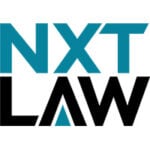-
Please provide a high-level overview of the blockchain market in your jurisdiction. In what business or public sectors are you seeing blockchain or other distributed ledger technologies being adopted?
Indonesia is currently going through rapid developments in the blockchain and crypto asset market. This transformation is marked by the wider adoption of technology, growing investor interest, and the continuous strengthening of an evolving regulatory framework by the government.
In Indonesia, the main adoption of blockchain technology is still primarily prevalent in the digital finance sector, specifically, in relations to crypto assets. In addition to the crypto assets, Indonesia has also introduced the concept of digital gold to the public. The latest regulation concerning digital gold was issued in 2025.
However, its application in Indonesia is far broader. Its use spans government initiatives, the banking sector, and startup-driven innovations. For instance, PT Pelabuhan Indonesia, a state-owned enterprise managing seaports has adopted blockchain to monitor containers and export–import documentation. This implementation has successfully reduced administrative time by up to 40% and mitigated fraud risks within the logistics process.1
In the banking sector, PT Bank Negara Indonesia, Tbk., a publicly listed state-owned bank has emerged as one of the pioneers in implementing blockchain technology, particularly in supporting trade finance and remittance services2. Meanwhile, in the startup ecosystem, Tokocrypto, established in 2018 has evolved from a crypto trading platform into an integrated blockchain ecosystem known as TokoVerse, encompassing digital asset trading services as well as public education programs on blockchain technology3.
Nevertheless, the current discourse on blockchain in Indonesia cannot be separated from crypto assets. In Indonesia, public participation in crypto assets has been remarkably high, especially within the financial services and financial technology sectors. The Commodity Futures Trading Regulatory Agency (Badan Pengawas Perdagangan Berjangka Komoditi / “Bappebti”) recorded that the total transaction value of crypto assets in Indonesia from January to November 2024 reached IDR 556.53 trillion, representing a significant increase compared to the same period in 2023, which stood at only IDR 122 trillion4. This figure confirms that crypto trading has become one of the most sought-after investment instruments among the public.
-
Please outline the principal legislation and the regulators most relevant to the use of blockchain technologies in your jurisdiction. In particular, is there any blockchain-specific legislation or are there any blockchain-specific regulatory frameworks in your jurisdiction, either now or envisaged in the short or mid-term?
Indonesia does not have any specific principal regulation or legislation to exclusively govern blockchain technology. However, Indonesia acknowledges the existence of blockchain technology in its legal framework through Government Regulation Number 28 of 2025 concerning Risk-Based Business Licensing (Peraturan Pemerintah No. 28 Tahun 2025 / “GR 28/2025”), which came into effect on 5 June 2025, which marks an important milestone in the regulatory development of blockchain technology in Indonesia. This regulation signifies Indonesia’s official recognition of blockchain technology.
GR No. 28/2025 regulates the mechanism of risk-based business licensing, which covers business activities in general. Under Article 186, GR 28/2025 has classified the lines of business under the System Operations and Electronic Transaction Sector, which includes (among others), development of blockchain technology activities, provision of digital identity activities, and artificial intelligence programming activities.
Indonesia has also further acknowledged the existence of blockchain technology and has defined business activities relating to such under the 5-digit Standard Classification of Indonesian Business Fields (KBLI), namely KBLI No. 62014 (Blockchain Technology Development Activities). For business actors, two fundamental legal requirements must be fulfilled for this line of business: (i) a Business Identification Number (Nomor Induk Berusaha / “NIB”) as the official business identity, and a (ii) Standard Certificate, as proof of compliance with the applicable business activity standards.
-
What is the current attitude of the government and of regulators to the use of blockchain technology in your jurisdiction?
There is no official statement or position from the government or regulators on their view of blockchain technology in Indonesia. However, in general, the Indonesian government and regulator have been well accepting and receptive of the implementation of blockchain technology.
Among others, Indonesia’s Vice President, Mr. Gibran Rakabuming Raka has emphasized on media that the issuance of GR No. 28/2025 is aligned with the government’s vision of realizing national digital down streaming. Mr. Gibran has stated that GR No. 28/2025 will act as the foundational basis for formulating Indonesia’s blockchain development roadmap.
While there is no official statement or position from the government and regulators relating to blockchain technology, the enactment of GR No. 28/2025 underscores the government’s commitment to provide a legal framework for the implementation and development of blockchain technology in Indonesia.
-
Is there a central bank digital currency (‘CBDC’) project in your jurisdiction? If so, what is the status of the project?
The Indonesian Central Bank, Bank Indonesia (“BI”) is currently developing a CBDC project known as “Project Garuda,” a strategic initiative to introduce the Digital Rupiah as the central bank’s digital currency. On 30 November 2022, BI has published a white paper on the matter. This was followed up by a publication of a consultative paper report focusing on the immediate wholesale of the Digital Rupiah, which includes discussions on the publication, transfer, and destruction of a Digital Rupiah5.
The latest updated publicised by the BI is on 13 December 2024, in which BI have publicised that they have concluded the immediate stage of the proof of concept6. However, as of this moment, there is limited public information relating to the status of the project.
-
What is the current approach in your jurisdiction to the treatment of cryptoassets and decentralised finance (‘DeFi’) for the purposes of financial regulation?
Currently, crypto assets are legally recognized in Indonesia as a commodity but not as a currency, but their use is restricted within a specific regulatory framework. Crypto assets are defined as a digital representation of value which may be stored and transferred technologies that allow the use of distributed ledgers such as blockchain. In practice, crypto assets are considered as an investment method, as crypto assets are not allowed to be used as a form of payment.
Prior to 2025, crypto trading was supervised by Bappebti as part of the futures commodity exchange, however, following the enactment of the Financial Sector Development and Strengthening Law (Undang-Undang Pengembangan dan Penguatan Sektor Keuangan / “UU P2SK”), the supervisory authority on crypto assets has shifted to the Financial Services Authority (Otoritas Jasa Keuangan / “OJK”).
Under OJK Regulation No. 27 of 2024 concerning the Implementation of Digital Financial Asset Trading, including Crypto Assets (“POJK 27/2024”), all crypto business actors, such as exchanges, custodians, and traders are required to obtain a license from OJK and comply with detailed rules regarding trading mechanisms, asset storage, risk management, and consumer protection.
This regulation provides detailed provisions covering crypto asset sales mechanisms, obligations for exchanges and marketplace operators, as well as secure asset storage procedures. Through this framework, OJK underscores the importance of transparency, prudence, and consumer protection by requiring crypto service providers to establish clear operational standards, implement risk management practices, and provide adequate education to the public.
Unlike several jurisdictions, Indonesia does not have a Virtual Asset Service Provider (VASP) License which generally provides companies to legally provide services relating to virtual assets. Instead, under POJK 27/2024, business actors in the field of digital financial assets (crypto) may acquire a license, specific for its business activity in the field of digital financial assets, such as (among others) exchanges, custodians, and traders. This framework limits the line of business of digital financial business actors to only conduct certain type of scope / activities as provided under POJK 27/2024.
Meanwhile, Decentralized Finance (DeFi) has not yet been specifically regulated in Indonesia. DeFi activities outside licensed platforms continue to operate without clear regulatory oversight. Nevertheless, crypto-related services that fall within the scope of financial services, including payment providers and digital transaction facilitators, remain subject to licensing requirements and supervision by OJK and the Bank Indonesia.
-
What is the current approach in your jurisdiction to the treatment of cryptoassets and DeFi for the purposes of anti-money laundering and sanctions?
The use of cryptocurrency as a means of payment in Indonesia is strictly prohibited by BI, as only the Indonesian Rupiah is recognized as legal tender. Consequently, merchants or service providers that accept payments in cryptocurrency may be subject to sanctions ranging from administrative fines and revocation of business licenses to the termination of operations. This policy has been implemented to safeguard the stability of the national financial system, ensure the effectiveness of Indonesia’s payment infrastructure, and to prevent money laundering activities utilizing crypto assets.
Under POJK 27/2024, crypto trading is subject to comprehensive rules. One of the key obligations is the implementation of Anti-Money Laundering (“AML”) measures through AML and Counter-Terrorism Financing (“CTF”) programs, which are integrated into the national AML framework. This means that, in addition to complying with OJK provisions, crypto traders are also required to adhere to Indonesia’s AML regulations.
Among others, a concrete example set under POJK 27/2023 stipulate that depository managers must refuse to store Digital Financial Assets (crypto) originating from suspicious sources or Crypto Assets that are not included in the Crypto Asset List7 and that Digital Financial Asset Trading Organizers are required to report any suspicious financial transaction to the Head of the Financial Transaction and analysis Reporting Center8.
-
What is the current approach in your jurisdiction to the treatment of cryptoassets and DeFi for the purposes of taxation?
The Government of Indonesia imposes taxation on cryptocurrency transactions in accordance with the general tax framework. Pursuant to Minister of Finance Regulation No. 50 of 2025 concerning Value Added Tax (“VAT”) and Income Tax on Crypto Asset Trading Transactions (“PMK 50/2025”), crypto assets are classified as securities or digital financial assets and, therefore, effective as of 1 August 2025, are no longer subject to VAT. However, crypto trading activities remain subject to final Income Tax (“PPh”) Article 22 at a rate of 0.21% of the transaction value (previously 0.20%)9.
For offshore Electronic System Trading Operators (Penyelenggara Perdagangan Melalui Sistem Elektronik / “PMSE”), the obligation to collect Article 22 Income Tax applies only if they have been designated by the Directorate General of Taxes (“DJP”). Such designation requires fulfilment of certain criteria, including the total transaction value with Indonesian buyers or the volume of traffic/visitors within a 12-month period, with thresholds to be determined by the Minister of Finance.
The sale of crypto assets through offshore platforms is subject to a final Income Tax of 1%, which is withheld directly through the tax system10. Furthermore, starting in 2026, income derived from crypto mining activities will also be subject to Income Tax in accordance with the general tax provisions.
Meanwhile, specific provisions concerning individual income tax on capital gains from crypto have not yet been regulated. In general, such gains are considered taxable income that must be reported in the Annual Income Tax Return. Accordingly, crypto industry participants remain obliged to report income in compliance with Indonesian tax regulations.
-
Are there any prohibitions on the use or trading of cryptoassets in your jurisdiction? If permitted, is cryptoasset trading common?
There is no prohibition for Indonesian citizens to buy, sell, or hold cryptocurrencies. On the contrary, the government permits crypto trading through licensed futures exchanges. What is prohibited is the use of crypto as legal tender and as a form of payment. The Central Bank (Bank Indonesia) has affirmed that crypto is not a currency and cannot be used in transactions for goods or services.
As a digital financial asset, crypto assets may only be traded on official registered futures exchanges (Pedagang Fisik Aset Kripto / “PFAK”). In practice, crypto trading in Indonesia is relatively widespread, the public have invested through various registered and licensed crypto traders in Indonesia.
In Indonesia, pursuant to Article 4 of POJK 27/2024, traded crypto assets must be listed in the Crypto Asset List by fulfilling the following criteria:
- issued, stored, transferred, and/or traded using distributed ledger technology;
- not a financial asset dictated electronically by financial service institutions;
- not originating from and/or used for activities that are contrary to the provisions of laws and regulations; and
- other criteria as determined by the Financial Services Authority (OJK).
-
To what extent have initial coin offerings (‘ICOs’) taken place in your jurisdiction and what has been the attitude of relevant authorities to ICOs? If permissible, what are the key requirements that an entity would need to comply with when launching an ICO?
As of today, Indonesia does not yet have a specific legal framework governing Initial Coin Offerings (“ICO”). POJK 27/2024 concerning digital financial asset trading explicitly states that the regulation does not cover initial offerings of digital assets, including ICOs or Initial Token Offerings (“ITO”)11. Consequently, the issuance of tokens through ICOs remains in a legal grey area, as it has not been specifically regulated.
In practice, crypto assets resulting from ICOs may be traded on licensed exchanges, subject to whether they have met the strict eligibility requirements for tradable crypto assets as stipulated under POJK 27/2024.
Looking ahead, there has been news publication stating that the OJK has included legislation on crypto token listings, including ICOs, in its 2025 legislative program, with issuance targeted for Q3–Q4 202512. Once enacted, token issuers will be required to comply with OJK regulations, such as obtaining a license as a Crypto Asset Trader and registering their tokens on the whitelist in order to be legally tradable. Generally, it is expected that if ICOs are formally permitted, organizers will be required to meet transparency standards, present a clear project roadmap, implement KYC/AML procedures, and register officially with the OJK.
-
Are there any legal or regulatory issues concerning the transfer of title to or the granting of security over cryptoassets?
The transfer of title to crypto assets in Indonesia is regulated under their classification as “digital financial assets” pursuant to the new OJK framework, replacing their earlier status as “commodities.” This shift, introduced through POJK 27/2024, imposes stricter compliance obligations on crypto asset trading organizers. Under POJK 27/2024, crypto assets must be issued, stored, transferred, and/or traded using distributed ledger technology, such as blockchain or equivalent systems.
A central element of title transfer, particularly in trading, is the strict traceability requirement under POJK 27/2024, which prohibits crypto assets from incorporating features that conceal ownership or transaction information13. This provision strengthens regulatory supervision and secures clear ownership chains on the blockchain. In addition, POJK 27/2024 enforces the “Travel Rule” for crypto asset transfers14:
- transactions of USD 1,000 (or equal value in Rupiah) or more must include complete sender and recipient information, including the name, address, and wallet address of the sender and recipient; and
- transactions below USD 1,000 (or equal value in Rupiah) require more basic details, such as the name and wallet address of the sender and recipient.
Trading platforms are expressly barred from processing transfers that fail to meet these Travel Rule standards. These measures ensure that transfers of title remain transparent and traceable in line with AML/CFT objectives.
Furthermore, with respect to the granting of security over crypto assets, there is currently no specific regulation or legislation governing such matters. By applying the fundamental principle of law, cryptocurrency assets can be classified as intangible goods and, consequently, may be subject to pledge or fiduciary assignment. However, in practice, the creation of security interests over crypto assets is not yet generally accepted, primarily due to the lack of clear legal framework and the practical difficulties in executing and the technicalities on the enforcement and execution of crypto assets.
For example, if a debtor were to provide pledge over a crypto asset, then there should be proper mechanisms under the crypto wallet / platform to block or restrict the debtor’s ability to transfer or dispose of the pledged asset, thereby preserving the creditor’s interest. In the absence of such mechanisms, creditors face significant risks in ensuring that the pledged assets remain intact and available for enforcement.
Consequently, while contractual arrangements may be drafted to simulate security interests, such actions are subject to substantial legal and practical uncertainties. Until authorities introduce a concrete legal framework and guidelines, the enforceability of security over crypto assets in Indonesia will remain limited and largely untested. In the context of the fiduciary assignment, it remains uncertain whether the fiduciary office is authorized to accept the registration of cryptocurrency assets as a fiduciary object.
-
How are smart contracts characterised within your legal framework? Are there any enforceability issues specific to the operation of smart contracts which do not arise in the case of traditional legal contracts?
In Indonesia, there are no specific legislation regulating smart contracts. However, they may generally be regarded as a form of electronic contract. Their validity may be assessed by reference to the legal requirements of agreements under Article 1320 of the Indonesian Civil Code (the “Civil Code”), as well as the provisions of Law No. 11 of 2008 on Electronic Information and Transactions as amended by Law No. 19 of 2016, and Government Regulation No. 71 of 2019 on the Implementation of Electronic Systems and Transactions (“ITE Law”).
ITE Law recognizes that electronic documents, electronic signatures, and electronic contracts have the same legal force as conventional contracts. Accordingly, smart contracts that are automatically executed through blockchain code may be deemed valid insofar as they satisfy the elements of mutual consent of the parties, legal capacity, a specific object, and a lawful cause.
Nevertheless, various challenges remain in their implementation. Key issues include cross-border jurisdictional differences, potential discrepancies between programming language and determining the parties’ actual intent, as well as risks of coding errors that may give rise to disputes. To date, there is no jurisprudence in Indonesia that explicitly governs smart contracts. Therefore, in practice, smart contracts are often supplemented with conventional written agreements to provide legal certainty, particularly in the event of future disputes.
The ITE Law, along with its amendments, serves as the primary legal basis for electronic transactions in Indonesia. This law recognizes electronic documents, electronic signatures, and electronic contracts as valid legal evidence, possessing legal force and consequences equivalent to conventional documents. Specifically, Article 1 number 17 of the ITE Law defines electronic contract as legal actions carried out through the use of computers, computer networks, and/or other electronic means. Article 6 of the ITE Law further stipulates that electronic information is declared valid as long as its content can be accessed, displayed, guaranteed integrity, and is accountable.
-
How are Decentralised Autonomous Organisations (‘DAOs’) treated in your jurisdiction?
In Indonesia, as of now, there is no specific regulation or legal framework that explicitly governs or defines Decentralized Autonomous Organisations (“DAO”). The legal status of such organizations remains unclear. The absence of recognition or regulatory framework indicates that a DAO is not treated as a legal entity in the same way as a limited liability company or a cooperative in Indonesia.
A DAO is generally understood as a member-owned community that operates without centralized leadership, governed by rules encoded as smart contracts on a blockchain. Governance and decision-making within a DAO are carried out collectively by its members through blockchain-based voting mechanisms, where tokens or NFTs typically represent voting rights. Proposals for organizational actions are submitted and then approved or rejected based on member votes, with all operations being transparent and executed autonomously through code on the blockchain15.
Since DAOs are not yet recognized as legal entities, any DAO-related activities in Indonesia must, in practice, be carried out through existing legal entities, such as foundations, associations, or companies. From a legal perspective, DAO members may be regarded as partners or community members. However, activities requiring specific licenses, such as fundraising or providing financing must still comply with the applicable laws and regulations, which at this moment is still absent.
Consequently, DAOs in Indonesia currently operate in a legal gray area, and stakeholders must anticipate and adhere to the legal requirements that apply to business entities and organizations in general.
-
Have there been any governmental or regulatory enforcement actions concerning blockchain in your jurisdiction?
In Indonesia, law enforcement and regulatory measures relating to blockchain have thus far been primarily directed at the misuse of crypto assets for illicit financial activities, rather than at the blockchain technology itself.
This underscores the law enforcement authorities’ commitment to combating financial crimes perpetrated through the use of digital assets. The principal focus lies in the prevention of Money Laundering and the Terrorism Financing, with the Financial Transaction Reports and Analysis Center (Pusat Pelaporan dan Analisis Transaksi Keuangan / “PPATK”) actively monitoring and investigating suspicious transactions involving crypto assets. The inherent anonymity of most crypto assets renders the process of identifying perpetrators and seizing assets significantly more challenging for the authorities.
Furthermore, several high-profile cases have revealed how crypto assets have been employed in illicit practices. For instance, in the 2021 corruption case involving PT Asabri, a state owned insurance and pension fund, the Indonesian Attorney General’s Office discovered that a suspect attempted to conceal criminal proceeds by purchasing bitcoin, which was subsequently converted back into Rupiah once the suspect’s identity was uncovered16.
Indonesia’s Attorney General has also issued a guideline under Attorney General Guideline No. 7 of 2023 on Handling of Crypto Assets as Evidence in Criminal Cases, to act as a guideline for prosecutors to handle and store evidence in the form of Crypto Assets in criminal cases, which underscores the Attorney General’s office attempt to adapt with the evolving nature of digital assets and the growing need for clear procedures in managing them within the criminal justice system.
-
Are there any other generally-applicable laws, case law or regulations that may present issues for the use of blockchain technology (such as privacy and data protection law or insolvency law)?
There is no case law or legislation which may explicitly present issue for the use of blockchain technology. However, the absence of legislation governing blockchain technology itself is the primary barrier for the implementation of blockchain technology.
While GR No. 28/2025 has provided the general foundation for the blockchain activities business field, it does not provide any further details with regards to the scope of business. This may raise questions from business actors on whether their specific activity falls into the scope of business under KBLI No. 62014 (Blockchain Technology Development Activities), considering how widespread the implementation of blockchain technology is.
For example, with regards to security and encumbrance, while it is technically possible for crypto assets to be pledged as security, there is the unresolved question on how the safekeeping of a secured assets and execution of assets in the form of crypto assets should be conducted. This may present a barrier for blockchain technology, i.e., crypto assets to be fully implemented.
-
Are there any other key issues concerning blockchain technology in your jurisdiction that legal practitioners should be aware of?
As we have elaborated in our previous responses, Indonesia has provided the legal framework for blockchain technology with the issuance of GR No. 28/2025. However, it is worth noting that such framework is relatively limited, as GR No. 28/2025 acts the general framework for business licensing in Indonesia and not a specific legislation to govern blockchain technology in depth.
As there is not yet any specific regulation or legal framework which comprehensively regulate on blockchain technology, any persons which will conduct any blockchain related business activities must adhere to multiple regulations across different sectors, which may include (among others):
- Personal Data Protection, with respect to blockchain activities that involves personal data of individuals.
- Anti Money Laundering / Counter Terrorism Financing, with respect to blockchain technology as a part of financial system digitalization.
- Electronic System and Transactions, as blockchain technology applications may fall within the scope of electronic system operators, as regulated under the ITE Law.
- Financial Services Regulation and Capital Markets, which is applicable when a blockchain technology is utilized for digital assets (crypto assets) or other financial instruments, which may fall under the auspices of the OJK or the Bappebti.
Furthermore, noting the absence of specific regulations relating to blockchain technology, it is also possible that a blockchain business may fall into the Financial Sector Technological Innovation legal framework (Inovasi Teknologi Sektor Keuangan / “ITSK”), which acts as the umbrella legal framework for new innovations and unregulated business in the financial technology sector. The ITSK legal framework enables novel unregulated business activities to operate under a “regulatory sandbox” scheme.
However, in order to participate in a regulatory sandbox scheme as an ITSK, businesses must first fulfil the strict requirements set out by the OJK. This includes, among others, demonstrating novelty and/or having significant distinguishing elements from those which has been undertaken previously in the financial sector and providing a benefit, improving services and providing added value to consumers, the public, and/or the financial sector ecosystem, and other criteria’s as may be stipulated by the OJK.
Indonesia: Blockchain & Crypto Assets
This country-specific Q&A provides an overview of Blockchain & Crypto Assets laws and regulations applicable in Indonesia.
-
Please provide a high-level overview of the blockchain market in your jurisdiction. In what business or public sectors are you seeing blockchain or other distributed ledger technologies being adopted?
-
Please outline the principal legislation and the regulators most relevant to the use of blockchain technologies in your jurisdiction. In particular, is there any blockchain-specific legislation or are there any blockchain-specific regulatory frameworks in your jurisdiction, either now or envisaged in the short or mid-term?
-
What is the current attitude of the government and of regulators to the use of blockchain technology in your jurisdiction?
-
Is there a central bank digital currency (‘CBDC’) project in your jurisdiction? If so, what is the status of the project?
-
What is the current approach in your jurisdiction to the treatment of cryptoassets and decentralised finance (‘DeFi’) for the purposes of financial regulation?
-
What is the current approach in your jurisdiction to the treatment of cryptoassets and DeFi for the purposes of anti-money laundering and sanctions?
-
What is the current approach in your jurisdiction to the treatment of cryptoassets and DeFi for the purposes of taxation?
-
Are there any prohibitions on the use or trading of cryptoassets in your jurisdiction? If permitted, is cryptoasset trading common?
-
To what extent have initial coin offerings (‘ICOs’) taken place in your jurisdiction and what has been the attitude of relevant authorities to ICOs? If permissible, what are the key requirements that an entity would need to comply with when launching an ICO?
-
Are there any legal or regulatory issues concerning the transfer of title to or the granting of security over cryptoassets?
-
How are smart contracts characterised within your legal framework? Are there any enforceability issues specific to the operation of smart contracts which do not arise in the case of traditional legal contracts?
-
How are Decentralised Autonomous Organisations (‘DAOs’) treated in your jurisdiction?
-
Have there been any governmental or regulatory enforcement actions concerning blockchain in your jurisdiction?
-
Are there any other generally-applicable laws, case law or regulations that may present issues for the use of blockchain technology (such as privacy and data protection law or insolvency law)?
-
Are there any other key issues concerning blockchain technology in your jurisdiction that legal practitioners should be aware of?




















